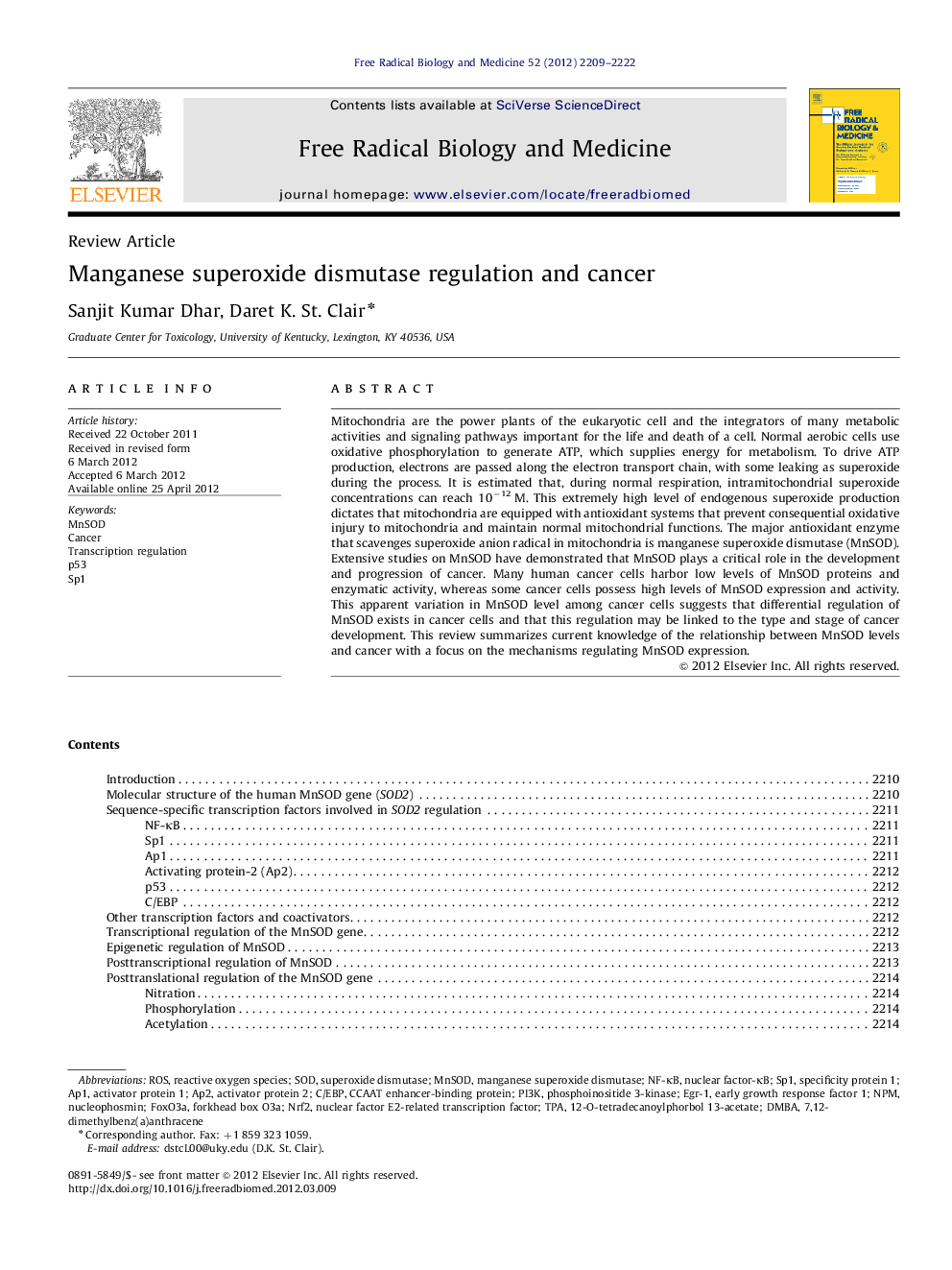| Article ID | Journal | Published Year | Pages | File Type |
|---|---|---|---|---|
| 1908816 | Free Radical Biology and Medicine | 2012 | 14 Pages |
Mitochondria are the power plants of the eukaryotic cell and the integrators of many metabolic activities and signaling pathways important for the life and death of a cell. Normal aerobic cells use oxidative phosphorylation to generate ATP, which supplies energy for metabolism. To drive ATP production, electrons are passed along the electron transport chain, with some leaking as superoxide during the process. It is estimated that, during normal respiration, intramitochondrial superoxide concentrations can reach 10−12 M. This extremely high level of endogenous superoxide production dictates that mitochondria are equipped with antioxidant systems that prevent consequential oxidative injury to mitochondria and maintain normal mitochondrial functions. The major antioxidant enzyme that scavenges superoxide anion radical in mitochondria is manganese superoxide dismutase (MnSOD). Extensive studies on MnSOD have demonstrated that MnSOD plays a critical role in the development and progression of cancer. Many human cancer cells harbor low levels of MnSOD proteins and enzymatic activity, whereas some cancer cells possess high levels of MnSOD expression and activity. This apparent variation in MnSOD level among cancer cells suggests that differential regulation of MnSOD exists in cancer cells and that this regulation may be linked to the type and stage of cancer development. This review summarizes current knowledge of the relationship between MnSOD levels and cancer with a focus on the mechanisms regulating MnSOD expression.
Graphical abstarctFigure optionsDownload full-size imageDownload high-quality image (91 K)Download as PowerPoint slideHighlights► The mechanisms by which MnSOD levels are altered in early and advanced stages of cancer are reviewed. ► Oxidative stress in mitochondria is a cause of Warburg effects. ► The biological effects of MnSOD associated with cancer are discussed.
